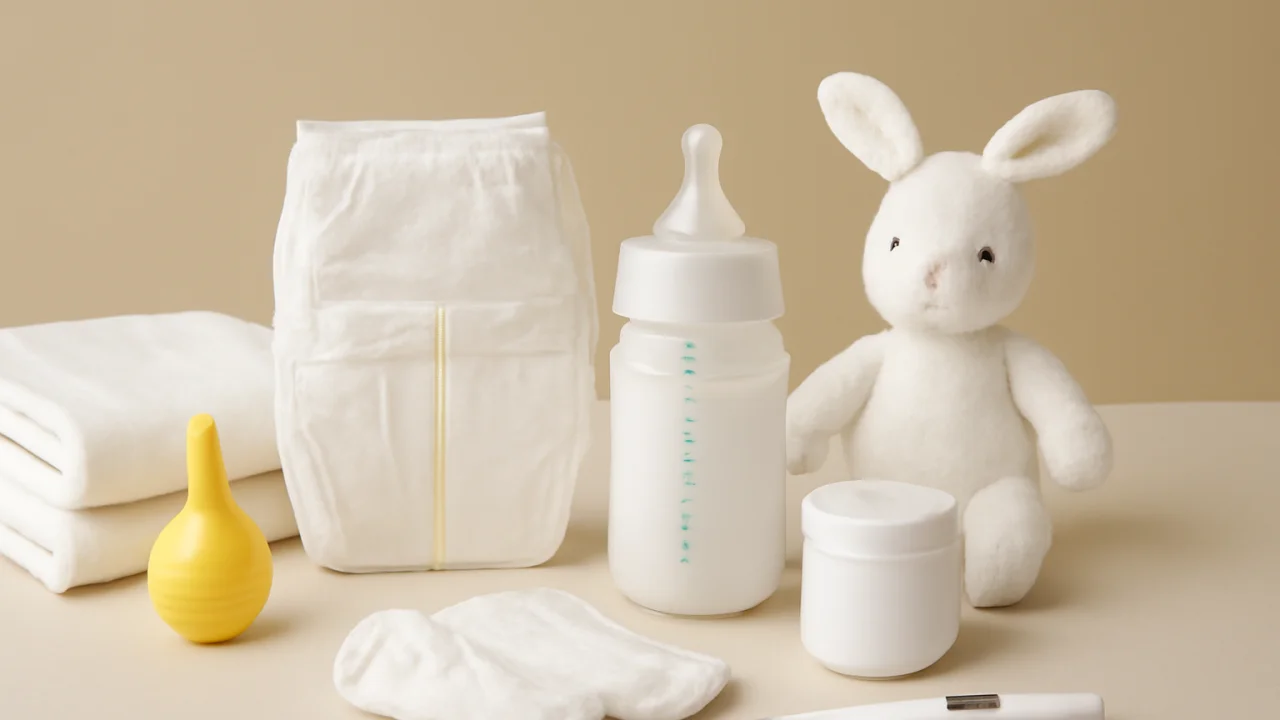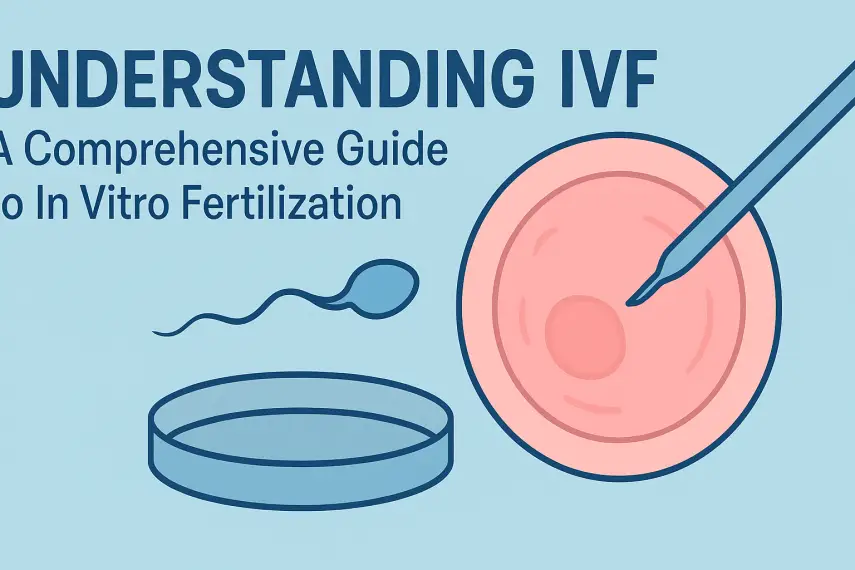
Comprehensive Guide to Mother & Baby Health: Essential Tips for a Healthy Start
📑 Contents
Comprehensive Guide to Mother & Baby Health: Essential Tips for a Healthy Start
Ensuring the health and well-being of both mother and baby is paramount throughout pregnancy, childbirth, and the early months of a child's life. This comprehensive guide covers the most important aspects of mother and baby health, offering practical tips, evidence-based recommendations, and answers to common questions. Whether you're planning a family, currently expecting, or caring for a newborn, this resource will help you make informed decisions for a healthy start.
Prenatal Care: Building a Strong Foundation

Prenatal care is the cornerstone of a healthy pregnancy and a positive outcome for both mother and baby. Regular check-ups help monitor the baby's development, detect potential issues early, and provide guidance on lifestyle choices.
Key Components of Prenatal Care
- Early and Regular Visits: Schedule your first prenatal appointment as soon as you suspect pregnancy. Continue with regular visits as recommended by your healthcare provider.
- Screenings and Tests: Routine blood tests, ultrasounds, and screenings for gestational diabetes, anemia, and infections are essential.
- Vaccinations: Stay up to date with recommended vaccines, such as flu and Tdap, to protect both you and your baby.
- Lifestyle Guidance: Receive advice on nutrition, exercise, and avoiding harmful substances like tobacco, alcohol, and certain medications.
Nutrition for Mother and Baby

A balanced diet during pregnancy and breastfeeding is vital for the mother’s health and the baby’s development. Proper nutrition helps prevent complications, supports fetal growth, and aids postpartum recovery.
Essential Nutrients During Pregnancy
| Nutrient | Why It’s Important | Sources | Recommended Daily Amount |
|---|---|---|---|
| Folic Acid | Prevents neural tube defects | Leafy greens, fortified cereals, beans | 600 mcg |
| Iron | Supports increased blood volume, prevents anemia | Red meat, lentils, spinach | 27 mg |
| Calcium | Builds baby’s bones and teeth | Dairy, tofu, broccoli | 1,000 mg |
| Vitamin D | Supports calcium absorption | Fatty fish, eggs, sunlight | 600 IU |
| Protein | Promotes tissue growth in mother and baby | Lean meats, beans, dairy | 71 g |
| Omega-3 Fatty Acids | Supports brain and eye development | Salmon, walnuts, flaxseed | 200–300 mg DHA |
Nutrition Tips for Breastfeeding Mothers
- Eat a variety of nutrient-rich foods to maintain milk quality.
- Stay hydrated, aiming for at least 8–10 cups of fluids daily.
- Continue taking prenatal vitamins as advised by your doctor.
- Avoid high-mercury fish and limit caffeine intake.
Mental Health and Emotional Well-Being
Mental health is just as important as physical health during and after pregnancy. Hormonal changes, life adjustments, and sleep deprivation can affect mood and well-being.
Common Mental Health Challenges
- Baby Blues: Mild mood swings, irritability, and emotional sensitivity affect up to 80% of new mothers and typically resolve within two weeks.
- Postpartum Depression: More severe and lasting, symptoms include persistent sadness, fatigue, anxiety, and difficulty bonding with the baby. It affects about 1 in 7 women.
- Postpartum Anxiety: Characterized by excessive worry, restlessness, and physical symptoms like rapid heartbeat.
How to Support Maternal Mental Health
- Seek support from family, friends, or support groups.
- Communicate openly with your healthcare provider about your feelings.
- Practice self-care, including rest, nutrition, and gentle physical activity.
- Don’t hesitate to seek professional help if symptoms persist or worsen.
Newborn Care Essentials

Caring for a newborn involves meeting their basic needs and monitoring their health closely. New parents often have questions about feeding, sleep, hygiene, and growth milestones.
Feeding Your Baby
- Breastfeeding: Recommended exclusively for the first six months, providing optimal nutrition and immune protection.
- Formula Feeding: A safe alternative when breastfeeding is not possible or chosen.
- Feeding Frequency: Newborns typically feed every 2–3 hours, or 8–12 times in 24 hours.
Safe Sleep Practices
- Place your baby on their back to sleep, on a firm, flat surface.
- Keep the crib free of pillows, blankets, and toys to reduce the risk of SIDS (Sudden Infant Death Syndrome).
- Room-share without bed-sharing for at least the first 6 months.
Hygiene and Umbilical Cord Care
- Keep the umbilical stump clean and dry until it falls off naturally (usually within 1–2 weeks).
- Bathe your baby 2–3 times a week; daily baths aren’t necessary.
Common Health Concerns for Mother and Baby
Understanding common health issues helps parents respond quickly and seek appropriate care when needed.
For Mothers
- Mastitis: Breast infection causing pain, redness, and fever. Prompt treatment with antibiotics is often necessary.
- Postpartum Hemorrhage: Excessive bleeding after delivery requires immediate medical attention.
- Urinary Tract Infections (UTIs): More common postpartum. Symptoms include burning, frequent urination, and pelvic pain.
For Babies
- Jaundice: Yellowing of the skin and eyes, common in newborns. Most cases are mild, but severe jaundice requires treatment.
- Colic: Prolonged crying and fussiness, often peaking at 6 weeks and improving by 3–4 months.
- Diaper Rash: Prevent by keeping the area clean and dry; use barrier creams as needed.
- Fever: Any fever in a baby under 3 months should be evaluated by a doctor.
Immunizations and Preventive Health
Vaccinations are crucial for protecting both mother and baby from serious illnesses. Preventive health measures, including regular check-ups and screenings, ensure ongoing well-being.
Key Vaccines for Babies (Birth to 1 Year)
- Hepatitis B
- DTaP (Diphtheria, Tetanus, Pertussis)
- Polio
- Hib (Haemophilus influenzae type b)
- Pneumococcal
- Rotavirus
- MMR (measles, mumps, rubella) – after 12 months
Preventive Health Tips
- Attend all scheduled well-baby visits and immunizations.
- Monitor developmental milestones and discuss any concerns with your pediatrician.
- Maintain a smoke-free, safe home environment.
When to Seek Medical Help
Knowing when to seek medical attention can save lives and prevent complications. Trust your instincts—if something feels wrong, contact your healthcare provider.
Warning Signs in Mothers
- Severe headache, vision changes, or swelling (signs of preeclampsia)
- Heavy bleeding or foul-smelling discharge
- Persistent fever or chills
- Signs of depression, anxiety, or thoughts of self-harm
Warning Signs in Babies
- Fever of 100.4°F (38°C) or higher in infants under 3 months











